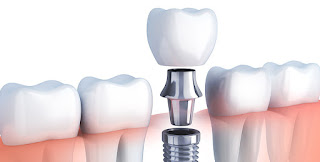Dental implant restorations are a pivotal advancement in modern dentistry, providing a long-term solution for patients with missing teeth due to decay, disease, or injury. This guide delves deep into the dental implant restoration process, offering vital information for anybody considering this life-enhancing treatment.
Ideal Candidates for Dental Implant Restoration
Dental implant restorations are typically pursued by individuals trying to:
Replace one or multiple missing teeth and restore both their smile and dental functionality.
Support implants securely with sufficient jawbone structure.
Find a durable substitute for traditional dentures or dental bridges.
Achieve a tooth replacement that mimics all-natural look and feel of the real teeth without the complications of periodontal disease.
Initial Consultation and Treatment Planning
Thorough Evaluation: This first step includes a comprehensive dental exam, X-rays, and perhaps 3D images to assess bone density and also the health of the gums, crucial for planning the implant placement.
Customized Plan for treatment: The oral surgeon or general dentist will build up a personalized plan according to your dental needs and conditions. This plan details the complete process, from bone grafting if needed due to insufficient cuboid, to the final keeping the porcelain crowns or implant-supported dentures.
Preparatory Procedures
Before the main implant procedure, you might require:

Tooth Extractions: Removing irreparable teeth.
Bone Grafting: Needed for providing a great base in cases of significant bone loss.
Sinus Lift: Ensures adequate bone height inside the upper jaw, preventing implants from encroaching into sinus spaces.
Types of Implants and methods
Endosteal Implants: Commonly used, these titanium posts are inserted directly into the jawbone, providing a foundation for the artificial teeth.
Subperiosteal Implants: Positioned beneath the gum but across the jawbone, suitable for patients lacking adequate bone height and preferring not to undergo extensive bone augmentation.
The Dental Implant Process
Local Anesthesia: Administered to attenuate discomfort through the dental implant surgery.
Multiple Visits: The process spans several months, especially if bone grafts are essential, allowing for the healing process before final implant placement.
Post-Procedure Care
Immediate Aftercare: Expect some swelling, bruising, and minor bleeding post-surgery, which will subsides inside a few days. Ice packs and prescription medication can alleviate discomfort.
Long-term Maintenance: Much like natural teeth, tooth implants require regular brushing, flossing, and dental check-ups to keep up good oral health.
Risks and Complications
Infection: Possible in the implant site.
Implant Failure: May appear if the jawbone will not fuse adequately to the implant post.
Nerve Damage: Though rare, you can get pain or numbness in adjacent teeth, gums, and surrounding tissues.
Recovery and Success Rates
Healing Time: Tooth implants typically necessitate several months to heal fully, a period during which osseointegration occurs-where the navicular bone integrates with the titanium implant.
Results: Generally above 95%, the success of dental implant restorations depends on the patient’s health, the care quality provided, and adherence to get affordable oral hygiene practices.
Insurance and Financing Options
Insurance plan: Most insurance coverage cover the crown restoration although not the entire dental implant placement process. It’s preferable to verify the specifics with your provider.
Financing Options: Many dental practices offer flexible payment plans or can suggest third-party lenders.
Cost Estimates by Country
United States: Ranges from $1,500 to $6,000 per implant, inclusive of the implant, abutment, and crown.
Mexico: Starts at around $750 for a single implant, with comprehensive treatments like full-arch restorations accruing to $15,000.
India: Offers economical options from $500 for any single implant to $7,000 for full-mouth reconstructions.
Hungary: Recognized for its affordable dental services, single implants start at $1,000.
Factors Affecting Cost
Preparatory Procedures: Costs can escalate as a result of need for extractions, bone grafts, or sinus lifts.
Implant and Restoration Type: A choice of titanium or zirconia implants and the type of crown (porcelain-fused-to-metal or all-ceramic) can influence costs.
Dental office and Surgeon’s Fees: Prices vary in line with the surgeon’s expertise and exercise location.
Additional Costs: Including diagnostics like CT scans, consultation fees, and any necessary post-op care.
Global Risks and Benefits
United states of america:
Benefits: High standards of dental treatments with advanced technology and strict regulatory oversight.
Risks: Higher costs, with possibility of incomplete insurance coverage.
Mexico:
Benefits: Lower costs with comprehensive treatment packages which make dental care affordable.
Risks: Variability in clinic standards; some might not align with U.S. standards, complicating installments of malpractice.
India:
Benefits: Cost-efficient treatments coupled with high standards in major cities and English-speaking doctors.
Risks: Longer distances for follow-ups, which could complicate the procedure process for U.S. residents.
Hungary:
Benefits: Renowned for dental treatments and tourism with significantly lower costs compared to the U.S.
Risks: Potential challenges include travel logistics and language barriers that could affect the treatment and follow-up process.
Dental implant restorations are an ideal way to replace missing teeth, supplying a permanent solution that enhances your beautiful smile and overall teeth's health. This treatment isn't only a great option for restoring just one missing tooth also for multiple teeth through procedures for example implant-supported bridges or dentures. The top success rate of does delta dental cover dental implants, coupled with their natural-looking and functional properties, ensures they are one of the best choices for tooth replacement. Prospective dental people are encouraged to consider all aspects of the dental implant restoration process-from initial consultation towards the final placement of the permanent crown-to guarantee the best outcomes. Remember, selecting the best oral surgeon and dental practice, understanding the full scope of necessary preparatory work, and doing so with proper post-operative care are essential steps in achieving an effective dental restoration. Whether seeking treatment locally or considering dental tourism, thorough research and careful planning are answer to a satisfactory experience.
